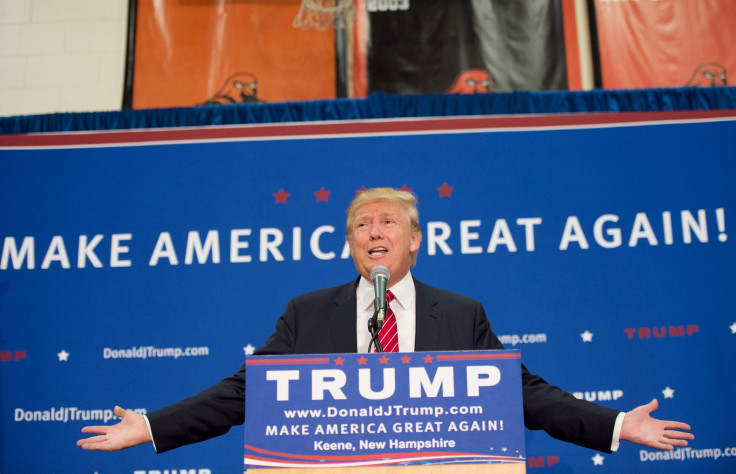Donald Trump And Eminent Domain: 2016 Candidate Champions Property Seizure Despite Its Racist History

Donald Trump, the real estate mogul and front-runner in the race for the 2016 Republican presidential nomination, is a maverick on the issue of eminent domain. Although very few people in his party share the view that governments should have the right to take private property from citizens for public use, Trump reiterated his support for the policy Tuesday in an interview with Fox News.
"Eminent domain, when it comes to jobs, roads, the public good, I think it's a wonderful thing," Trump told Bret Baier, Fox News' political anchor, according to The Hill newspaper. “You're not taking property. … You're paying a fortune for that property,” he continued, adding that land and homeowners can receive up to 10 times the value of their property when eminent domain is used.
Trump made the comments just a few months after the 10th anniversary of a controversial U.S. Supreme Court decision that held government use of eminent domain was permissible to take private property and transfer it to other private interests, to promote economic development. Historically, that policy has an outsized negative impact on minorities who live in or near blighted urban areas, experts have said.
Kelo v. City of New London, the Supreme Court ruling decided in 2005, was blasted by both Democrats and Republicans as a matter of policy that could lead to abuse. “Allowing municipalities to pursue eminent domain for private economic development [has] … a disparate [sic] impact on African-Americans and other minorities,” Hillary Shelton, the NAACP’s director of governmental affairs, said this year in testimony before the U.S. Senate Judiciary Committee, according to a report by the Spotlight on Poverty.
A 2007 study commissioned by the Institute for Justice confirmed Shelton’s point. Researchers found that eminent domain has a disparate effect on communities that are least capable of defending themselves against having their property taken by the government. “Taken together, more residents in areas targeted by eminent domain—as compared to those in surrounding communities—are ethnic or racial minorities, have completed significantly less education, live on significantly less income, and significantly more of them live at or below the federal poverty line,” researchers stated in their analysis.
Since the Kelo decision, 45 states have enacted laws attempting to limit the scope of eminent domain power, according to a 2014 briefing by experts before the U.S. Commission on Civil Rights, an independent and bipartisan group of the federal government. But some experts have argued that the laws contain too many loopholes that “continue to permit the exact same kinds of condemnations under the guise of alleviating ‘blight,’” the commission stated.
Trump, who made a fortune building skyscrapers and hotels, told Fox News that he’s dealt with eminent domain a lot in building developments in New York City. The idea that people are forced to sell homes they don’t really want to give up is a myth, Trump said. "Most of the time, they just want money,” he told Baier. “These people can now go buy a house that's five times bigger and in a better location."
© Copyright IBTimes 2024. All rights reserved.






















